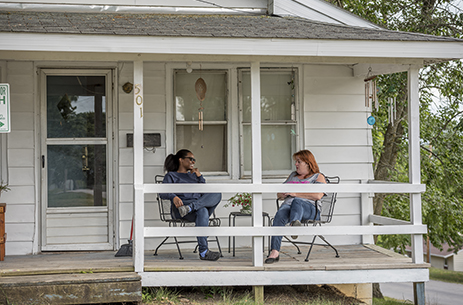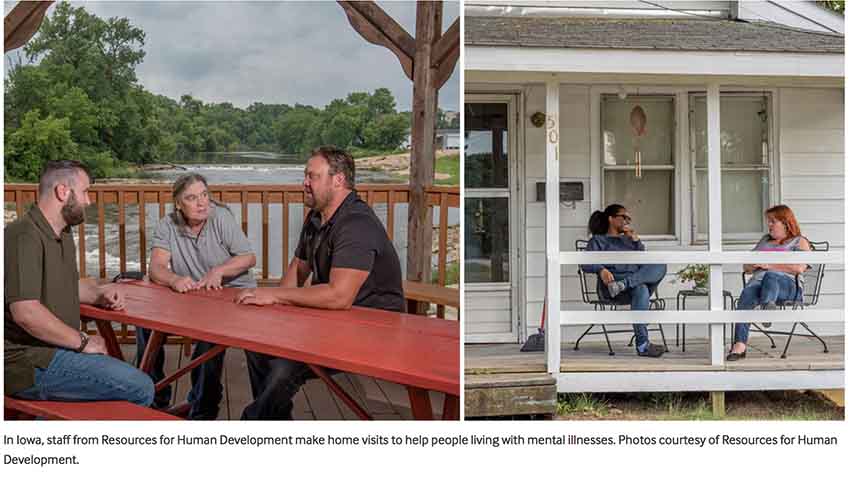Commonwealth Fund features RHD Iowa’s ACT teams in look at comprehensive care for adults with disabilities

October 5, 2018
The Commonwealth Fund, an organization established in 1918 to promote a high-performing health care system that achieves better access, improved quality, and greater efficiency, particularly for society’s most vulnerable, featured RHD Iowa’s ACT teams in an article titled: “Creating Better Systems of Care for Adults with Disabilities: Lessons for Policy and Practice.”
Resources for Human Development, a national human services provider, runs 13 assertive community treatment (ACT) programs, which deliver and coordinate intensive mental health care services for people whose lives are too unstable to be treated in a clinic setting.
In Iowa, for example, a nurse, mental health counselor, substance use specialist, and peer support counselor make home visits to help people living with mental illnesses often compounded by substance use disorders. The ACT team visited one man on the day he was released from jail, finding him temporary housing and making daily trips to deliver his medication for bipolar disorder. After a few months, he had moved into permanent housing and no longer required the daily visits. With intensive support from ACT staff, he has remained stably housed for 10 months, without hospitalizations or incarcerations.
The field team is supported by a psychiatrist and psychiatric nurse practitioner who offer virtual visits to clients via iPads or laptops. While nurses monitor clients’ health status and liaise with their primary care providers, peer support specialists offer them advice based on their firsthand experiences, says Gina Hiler, Resources for Human Development’s Midwest regional director. “They might talk to clients about practical strategies for their diet, activity, and medication regimens while they’re in recovery. They also connect people to natural supports in the community, whether that involves going with them to AA or NA meetings or going out for pizza,” she says.
Iowa’s ACT teams are supported by Medicaid, supplemented by county funding to make up for the fact that Medicaid services are billable only on weekdays but “ACT is a seven-day-a-week, 365-day-a-year program,” says Hiler. Among the 50 people receiving ACT services in the Waterloo, Iowa, region during the program’s first year, 23 percent have had psychiatric hospitalizations, compared with 40 percent in one large study of ACT participants.33 Nearly all (93 percent) have remained stably housed during their first year of engagement with the program, and 83 percent have had no arrests or other law enforcement involvement (compared with 67 percent in the large study of ACT participants).
Read the Commonwealth Fund story here
RHD Iowa ACT–Waterloo serves participants in a 30-mile service territory, while RHD Iowa ACT–Cedar Rapids serves a 60-mile radius of the Cedar Rapids office in the ECR MHDS region. RHD CROSS ACT serves the seven counties of the CROSS MHDS region.
Assertive Community Treatment (ACT) is an evidence-based, best- practice model of service provided through an interdisciplinary team to ensure a recovery-oriented system of care. ACT is available 24 hours a day, seven days per week, and is prepared to carry out a full range of treatment functions in the participants chosen community. The ACT team consists of the following members: master’s level mental health clinicians, registered nurse, substance abuse specialist, vocational specialist, psychiatrist/ARNP, peer support specialist, and a program assistant.



